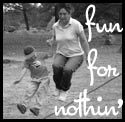One of the thumb rules for solving most relationship problems is that you focus on present pain rather than the accumulated slights of the past. Forgiveness is inherent to healing: it is not to be misunderstood as charity. You forgive so you can move on and heal, you gain more from it than the other person does. If we had to go back and make every act actionable, we would find our very definitions of right and wrong, good and bad, human and divine, challenged.
The Supreme Court's decision to allow the Ayodhya verdict to come through on Thursday, brought forth a surge of emotions, not unlike any relationship knot. I am willing to predict what the verdict will be: and it will uphold the respect that our judiciary still deserves, despite its many afflictions. And it will bring with it a sense of patriotism that even my jaded self will not be able to overshadow.
What is the definition of an outsider, usurper? Does it mean migrants - to countries, places, areas, localities, homes? Does it mean assimilation - of cultures, languages, needs, expressions, fears, reactions? Does it mean identity in terms of time - days, months, weeks, years, generations? Who decides when and how we deserve to belong? Whether we add, deduct, embellish or deface: it is our territorial instincts at play, so in a way, we belong to even that which we hate.
The shastras, literally the 'sacred books' of Hinduism comprise of four classes of scriptures: Shruti (the 'directly heard' or 'revealed' scriptures - the Vedas), Smriti('remembered' lores such as the Ramayana and Mahabharata), Puranas (literally meaning 'ancient' allegories), and the Tantra (rituals and rites). As the incredibly wise Sri Paramhansa Yogananda aptly says, the shastras convey profound truths under a veil of detailed symbolism. Never directly: always thought-provoking, letting your soul grow step by step with your free will.
Symbolism. That part of being Hindu that makes us at once pagan and nature worshipers, as it makes us perennial and primordial, to a time before language and culture, civilizations and its various architectural expressions.
The Ramayana has been remembered, quoted, embellished, misinterpreted and cherished for millenia now. Ram, the just ruler, symbolized how rulers/administrators in an ideal world should behave. When we cry for 'Rama Rajya', we don't cry for a Hindu government, we cry for justice, for democracy, for unity. Have you ever heard any Hindu asking for 'Krishna Rajya'? No: the Lord was many things, but he was not at able administrator.
By going back to who built, who broke down, who forced in, who chipped out: are we adding to our learnings from the Ramayana? Must we plunder and burn by placing our convictions on, not the lessons of a 'handed down by memory and recitation' text, but on its geographical interpretations? Who are we battling here? Ghazni died a 1000 years ago.
The right no on Thursday will be a no to Hindu fundamentalists. The right no will be a refusal to spend national time, tax-payers money and satellite feed on a bunch of hooligans who have been deprived of their fifteen seconds of fame. The right no will be to work, to commute, to live, to love and to fight, as always, regularly. The right no will be to make September 30 a regular Thursday. The right no will be making plans to show our children one of the oldest mosques in our beautifully diverse country.








